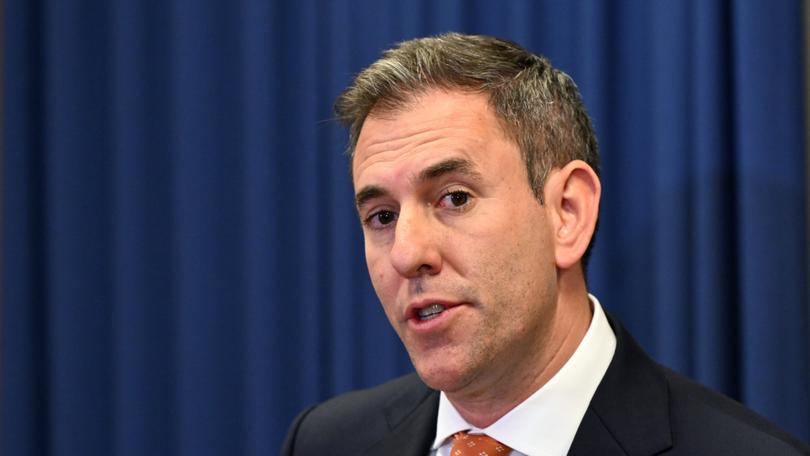Treasurer Jim Chalmers says China’s stimulus package a ‘very good development’ for Australia
China’s move to reverse its property market slump with a major stimulus package is a ‘very, very good development’ for Australia’s struggling economy, Treasurer Jim Chalmers says.

China’s move to reverse its property market slump with a major stimulus package is a ‘very, very good development’ for Australia’s struggling economy, Treasurer Jim Chalmers says.
Dr Chalmers held talks with senior economic officials in Beijing on Thursday — the first trip to China by an Australian treasurer in seven years.
The visit comes just days after China’s central bank governor announced new stimulus measures aimed at reviving the country’s property market, which includes a short-term interest rate cut and lower mortgage rates on existing housing loans.
Sign up to The Nightly's newsletters.
Get the first look at the digital newspaper, curated daily stories and breaking headlines delivered to your inbox.
By continuing you agree to our Terms and Privacy Policy.China’s prolonged construction downturn has caused a significant drop in the global iron ore price, hitting Australian miners and Federal Budget coffers.
Treasury analysis prepared ahead of Dr Chalmers’ trip estimated falling commodity prices could cost the Commonwealth about $4.5 billion.
Speaking in Beijing on Friday, the treasurer said while the full details of the stimulus package were yet to be released, the economic boost could “only be a good thing for Australia”.
“We think this is a really welcome development, a very welcome development here in China, but also for the global economy, and especially for our own economy,” he said.
Dr Chalmers said China’s economic slowdown, sticky inflation at home and the impact of interest rate rises were why Australia’s economy was “slowing considerably”.
“And when steps are taken here to boost economic activity and to boost growth in the Chinese economy, subject to the details that will be released in good time, we see that as a very, very good development for Australia,” he said.
Before jetting out to Beijing, the treasurer held talks with China-facing companies, including Fortescue, Rio Tinto and Wesfarmers, to understand the implications of a softening Chinese economy on exports.
Dr Chalmers said if China’s latest economic forecasts eventuated, Australia’s largest trading partner would suffer its weakest period of growth since the late 1970s.
“We have a lot at stake and a lot to gain when it comes to this key economic relationship,” he said.
“We know that a more stable relationship is good for Australia, and that’s why I’m here.”
Dr Chalmers was optimistic the barriers on lobster imports - the last of Beijing’s major COVID-era trade sanctions on Australia - would be dropped soon after productive face-to-face talks with his Chinese counterparts.
He indicated the two countries’ agriculture and trade departments needed to work through a few “technical issues” before the barriers could be lifted.
“We knew that coming here, I intended to raise it here, and I have, we do want to see a speedy resolution, but we know that there’s a little bit more work to do, but ideally, hopefully, we will see our wonderful Australian lobster gracing the tables of Chinese homes and restaurants as soon as possible,” he said.
